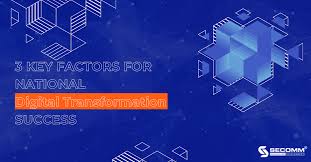Introduction to Blockchain Technology
Welcome to the revolutionary world of blockchain technology – a game-changer in the digital landscape! Have you ever wondered how information can be securely stored and shared without the need for intermediaries? Enter blockchain, a decentralized system that is reshaping industries across the globe. Join us on this journey as we unravel the mysteries behind this innovative technology and explore its endless possibilities.
How Does Blockchain Technology Work?
Blockchain technology operates on a decentralized network of computers known as nodes. Each node contains a copy of the blockchain, which is a digital ledger that records transactions across a distributed network.
When a new transaction occurs, it is grouped with other transactions to form a block. This block is then verified by multiple nodes through complex cryptographic algorithms before being added to the existing chain.
Once validated, the block becomes immutable and permanently linked to previous blocks in chronological order, creating a secure and transparent record of all transactions. This process ensures that no single entity can alter or tamper with the data stored on the blockchain.
Additionally, consensus mechanisms such as Proof of Work or Proof of Stake are used to validate transactions and maintain the integrity of the blockchain network. This innovative technology revolutionizes trust in digital interactions by eliminating intermediaries and enabling peer-to-peer transactions securely and efficiently.
Advantages and Disadvantages of Blockchain
Blockchain technology has various advantages that make it a powerful tool in the digital world. One of the key benefits is its transparency and security features. By design, blockchain creates a decentralized system where data is stored securely across multiple nodes, making it nearly impossible to alter or hack.
Another advantage of blockchain is its efficiency in reducing middlemen and transaction costs. Through smart contracts, parties can directly interact with each other without the need for intermediaries, streamlining processes and cutting down on fees.
However, like any technology, blockchain also has its drawbacks. One major disadvantage is scalability issues due to the consensus mechanism used in most blockchains. As more transactions are added to a block, it can slow down the network and affect performance.
Moreover, concerns around privacy and regulatory compliance have been raised regarding blockchain technology. While transactions are pseudonymous, they are still traceable on the public ledger which raises questions about user anonymity and data protection laws.
Understanding both the advantages and disadvantages of blockchain is crucial in leveraging this innovative technology effectively.
Real-life Applications of Blockchain
Blockchain technology is not just a buzzword; it’s actively changing various industries worldwide. One significant use case of blockchain is in supply chain management, where companies can track the journey of products from manufacturer to consumer transparently and securely. This ensures authenticity and reduces fraud.
Another real-life application of blockchain is in healthcare, where patient records stored on the blockchain can be accessed securely by authorized personnel, improving data accuracy and patient privacy. Moreover, voting systems are exploring blockchain to enhance transparency and security in elections by ensuring that votes cannot be altered or tampered with.
The entertainment industry also benefits from blockchain through improved royalty payments for artists by automating smart contracts. Additionally, financial institutions utilize blockchain for faster cross-border payments without the need for intermediaries like banks.
Blockchain technology continues to revolutionize diverse sectors with its decentralized nature, immutability, and enhanced security features.
The Future of Blockchain Technology
As we look towards the future, the potential of blockchain technology is truly limitless. With ongoing advancements and innovations in this field, we can expect to see even more widespread adoption across various industries.
One exciting aspect of the future of blockchain is its integration with Internet of Things (IoT) devices. This could lead to enhanced security, efficiency, and transparency in IoT networks.
Moreover, as scalability solutions continue to be developed, we may see blockchain being utilized for high-volume transactions on a global scale. This could revolutionize traditional financial systems and pave the way for decentralized economies.
Additionally, advancements in smart contracts and digital identities hold promise for streamlining processes in sectors such as supply chain management and healthcare.
With increased research and development efforts focusing on interoperability between different blockchains, we are moving closer towards a more interconnected ecosystem that promotes seamless data sharing while maintaining privacy and security protocols.
Potential Risks and Challenges
Blockchain technology, despite its many benefits, also comes with its fair share of risks and challenges. One major concern is the issue of security. While blockchain is known for its secure and decentralized nature, hackers are constantly evolving their techniques to breach these systems.
Another challenge is scalability. As more transactions are added to a blockchain network, the speed and efficiency of processing these transactions can become compromised. This has led to ongoing debates within the industry on how best to address this issue.
Regulatory uncertainty is another potential risk associated with blockchain technology. Different countries have varying laws and regulations regarding cryptocurrencies and blockchain applications, creating a complex legal landscape that companies operating in this space must navigate carefully.
Interoperability between different blockchains is also a challenge that needs to be addressed for wider adoption of the technology across industries. Ensuring seamless communication between various blockchains will be crucial for the future success of blockchain technology as a whole.
Conclusion: The Impact of Blockchain on the World
Blockchain technology has revolutionized the way we think about data and transactions. Its decentralized and secure nature has the potential to disrupt various industries, from finance to healthcare to supply chain management. As blockchain continues to evolve and find new applications, its impact on the world will only grow stronger.
From increasing transparency and security in transactions to reducing costs and streamlining processes, blockchain is set to transform how businesses operate. While there are challenges and risks that come with adopting this technology, the benefits far outweigh them.
As we look towards the future, it’s clear that blockchain will play a significant role in shaping our digital world. Its ability to create trust among parties without needing intermediaries is a game-changer that can lead us towards a more efficient, transparent, and secure global economy.
In conclusion: The impact of blockchain on the world is profound and far-reaching. It has the potential to drive innovation across industries, empower individuals by giving them more control over their data, and pave the way for a more connected and trustworthy digital ecosystem. The possibilities are endless as we continue to explore the full potential of this groundbreaking technology.
 Anupama Watch Anupama Desi Serial Today Latest Video Episodes Online at Anupamastarplus.cam
Anupama Watch Anupama Desi Serial Today Latest Video Episodes Online at Anupamastarplus.cam






